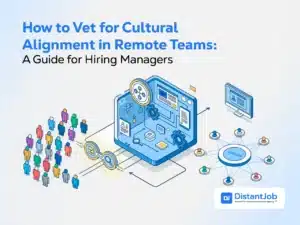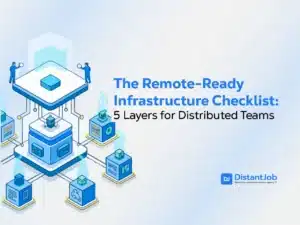Back in the early days of technology, computer programmers could be found lurking down in the basement of your office building, usually surrounded by pizza boxes and Nintendo memorabilia, à la IT Crowd. However, thanks to the surge in off-site possibilities, a remote programmer only need to go as far as their living room and computer desk to start their workday. Not a bad position to be in. Computer programming is getting so popular that companies like Tynker and STEM are developing systems to teach children as young as kindergarten age to learn to code. Mark Zuckerberg recently encouraged kids in high schools and universities to learn how to program.
At this point, there are an estimated 20 million developers worldwide, a number experts believe may be too conservative. With the number of developers on the rise, the opportunity for working remotely is becoming practically infinite. Undoubtedly, at some point in time, your business is going to require the expertise of a programmer. And they will most likely be remote. Why? Because that’s where the most talent lies. Global programmers are becoming so valuable for their finely honed skill sets that the demand transcends distances and borders.
So how do you know you’ll be a good fit as a manager for a remote programmer? The task can seem daunting, but you’ll find you’re up to the challenge if you follow these five suggestions from real programmers. Want to find people like them? Contact us.
The Care And Maintenance Of Your Remote Programmer
- Relevance
In the midst of speaking to remote programmers about their needs, I made a startling discovery. They feel neglected. With remote employees becoming the new norm, we may forget that thousands of miles away we have someone furiously writing codes for our projects. Soon the only one paying attention to your remote programmer is the Runtime Error message that periodically turns up, like the neighborhood cat you sometimes feed. When you manage programmers, it’s crucial to help them feel relevant. Plan to speak to your remote programming team at least once a week. Give praise. When your coder does well or keeps to their schedule, reach out and let them know. If they feel isolated, encourage group coding within the company. Jeff Atwood, Co-founder of Stack Overflow, pointed out the benefit of team coding. “Whenever there was a question about functionality or implementation, my team was able to rally around me.”
- Make a plan
Establish goals and timelines with your coders to eliminate any confusion with projects. When a remote programmer is coding, an interruption of a measly two seconds can throw them off for almost fifteen minutes. (I hope they never meet my toddler.) Scheduled meetings will help them stay in the loop but also eliminate having to contact them unnecessarily.

Communicating With Your Programmer
- Prioritize communication
For a remote developer, one of the biggest favors you can do for them is having clear and consistent communication. Your coder will be a lot more effective at their job if they understand what’s expected of them before it is expected!
- Don’t micromanage
Programmers often demonstrate the amazing ability to balance analytical thought with creativity. However, this means they need you to trust them with their tasks, including letting them work through problems in their way and avoid micromanaging.” Soliant Consulting Project Lead Steve Bennett noted, “Plenty of other factors also contribute to the productivity of a developer. Motivation and work ethic cannot be fixed by forcing a developer to work in the office.” Developers, like any creative thinker, may need to step away from coding to come up with a solution.
- Be available
Finally, it’s essential that you as a manager are accessible via electronic means. As one programmer I interviewed pointed out, it would be more comfortable to walk up to your desk and ask, but that’s not an option when you’re not in-house. A manager who is consistently unreachable or who simply doesn’t respond promptly will cause your developer frustration. Especially when they have taken the time to become familiar with a company’s preferred way of electronic communication.
A Happy Coder Works Harder
People may envision a remote programmer as someone who watches Lord of the Rings on a loop while making up new languages on their monitor, but that’s usually not the case. A skilled developer on your team can become priceless, so long as you manage them well. And while the kind of maintenance they require may seem to bounce too much between “hands-on” or “hands-off,” practice will help you find the sweet spot in-between. Good communication, goal-setting, helping them feel relevant, and understanding expectations will ensure your remote coder will be productive. In fact, in our attracting developer talent article, we found that coders are more productive remotely than in-house. As author Bill Bryson noted, “a computer is a stupid machine with the ability to do incredibly smart things, while computer programmers are smart people with the ability to do incredibly stupid things. They are, in short, a perfect match.”
Programmers and remote work are also a perfect match. So how does your company get in on it? With DistantJob, our job is to help you find the ideal coder who fits your business needs. So now that you know the rules for managing programmers remotely, what are you waiting for? Contact us today to start your coder matchmaking.




